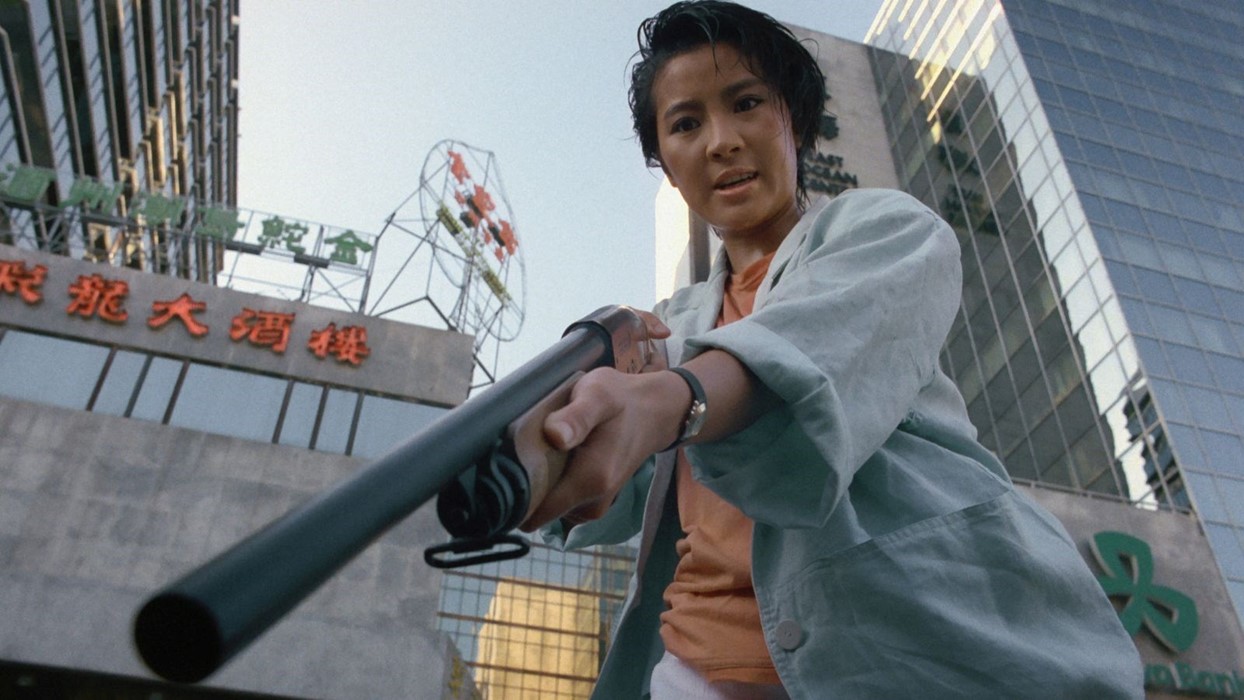Ahead of her nominations at the BAFTAs and the Oscars, we take a look back at the jaw-dropping action films that earned Michelle Yeoh a reputation for grace and gravitas
On the 24th January 2023, Michelle Yeoh became the first Asian woman to be nominated for an Academy Award for a lead acting performance – for her role in the parallel universe indie sensation Everything Everywhere All at Once. The news came just days after the Malaysian actress received a nomination for a BAFTA for the same film (she’d won her first Golden Globe for it a week earlier). She’s a frontrunner at both competitions in the coming weeks – only Cate Blanchett (Tár) is on par in terms of bookies’ odds for the gongs – and a win in either would be a crowning achievement for a career that has ignited both Western and Eastern cinema over the past four decades.
Yeoh was born in a former tin-mining town in western Malaysia in 1962, and moved to England to study ballet at 16. At the Royal Academy of Dance she’d earn a degree in dance while minoring in drama – a class she “hated”, and often skived from – only to find herself gracing the screen in Hong Kong just a few years after graduating. After winning the Miss World Malaysia contest in 1983, Yeoh was invited to appear in a cheesy watch commercial opposite film star Jackie Chan (for whom Yeoh’s role in Everything Everywhere All at Once was initially conceived) – a moment that marked the beginning of an illustrious performing career.
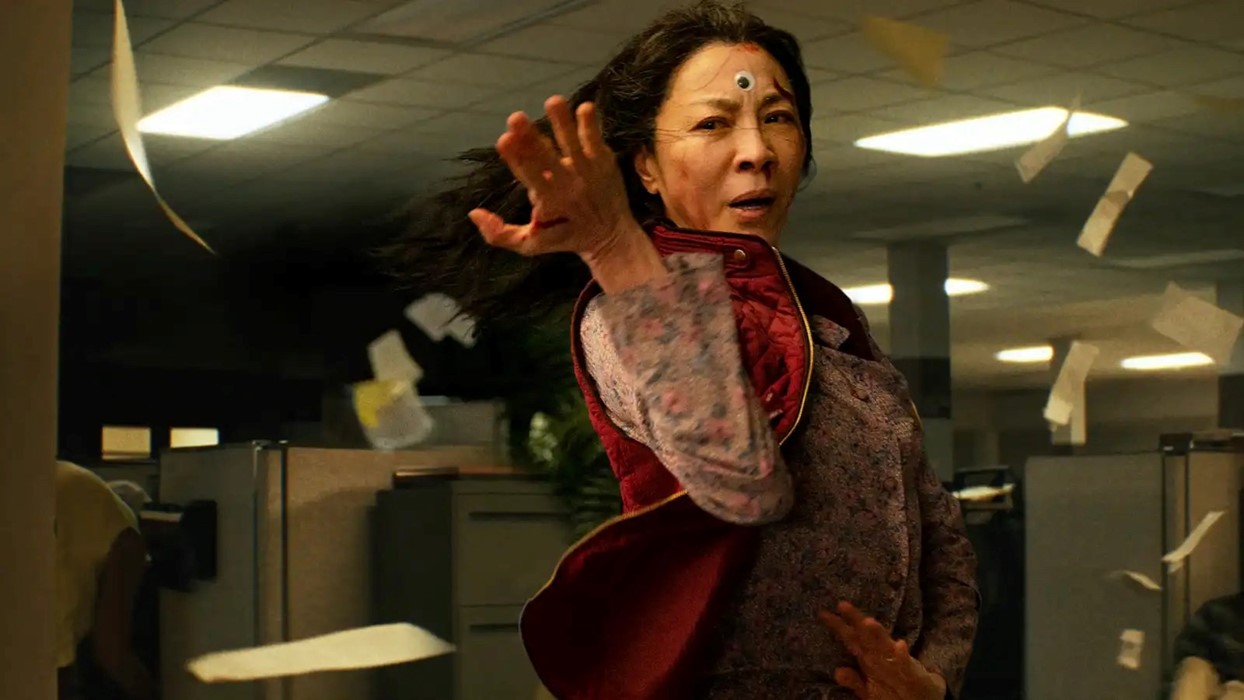
But long before she made her Hollywood debut as a Chinese Bond girl in 1997 (Tomorrow Never Dies), or landed major roles in Ang Lee’s Oscar-winning Crouching Tiger, Hidden Dragon; Rob Marshall’s Memoirs of a Geisha; Danny Boyle’s Sunshine; or hit rom-com Crazy Rich Asians, it was in Hong Kong – a country she could barely speak the language of at first – that Yeoh’s star first rose. In the 1980s, she’d emerge as a dynamic lead in a string of jaw-dropping action films that earned her a reputation for grace and gravitas. Admired for her dedication and fearlessness, she would soon be championed as the first lady of Hong Kong stunt work – it is the same determination that has led her all the way to the BAFTAs and the Oscars today.
With both ceremonies taking place in the days and weeks ahead, AnOther took a look back at the Hong Kong films that made Michelle Yeoh an icon – the majority, quite conveniently, have been restored and re-released in the UK by Eureka Films in the past few months. Expect bruising fistfights and acrobatic mayhem from an industry that was once world-renowned for it.
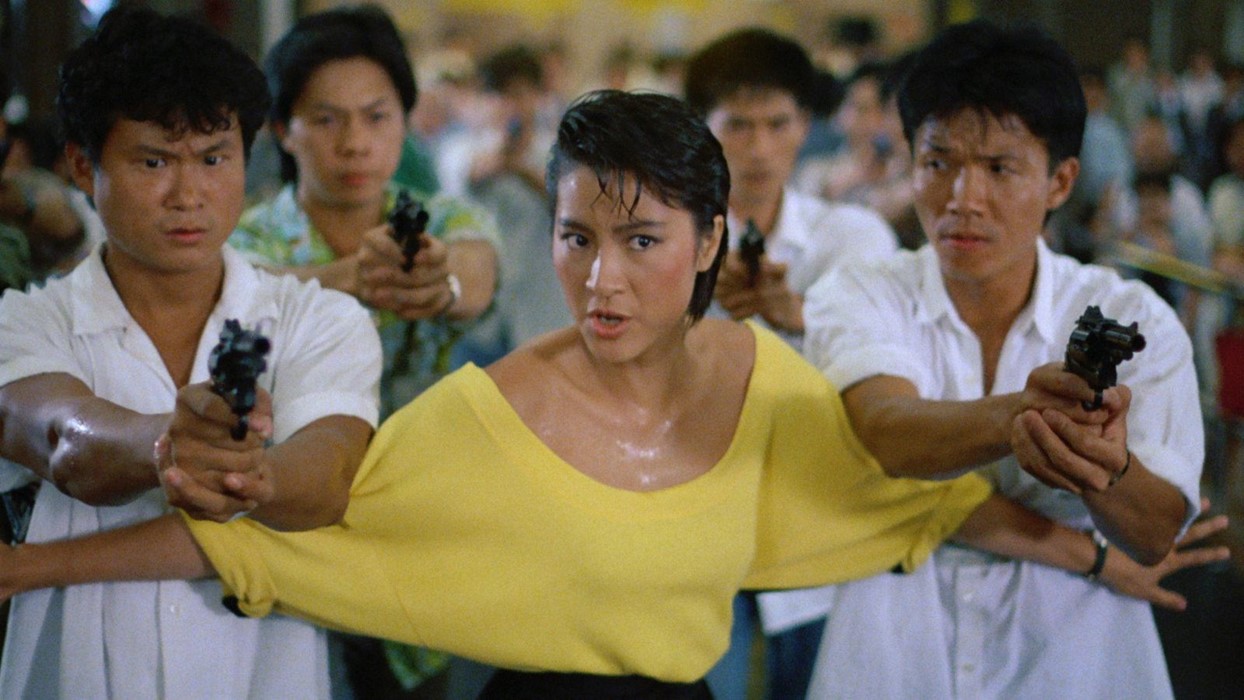
Yes, Madam (Corey Yuen, 1985)
Two years after winning the Miss World Malaysia beauty contest as a 20-year-old, Yeoh was cast as the lead in what would be her third feature film role in 1985. That film was the bonkers and supremely entertaining cops v robbers romp Yes, Madam – a foundational film in the emerging “girls with guns” subgenre, which would continue in Hong Kong with the popular In the Line of Duty series.
Yeoh, then going by the stage name Michelle Khan, plays a determined police inspector on the trail of three bumbling thieves named Aspirin, Strepsil and Panadol (the latter played by legendary filmmaker Tsui Hark) who have stolen an important document. It begins with an explosive street shoot-out – Dirty Harry reference included – and gets progressively more overblown thereafter, as Yeoh and Co keep cool and kick-ass via slow-motion set pieces and acrobatic take-downs.
With no prior training in martial arts, Yeoh committed to working out eight hours a day at the gym to prepare for the role – and, watching Yes, Madam, you can see why she’d be cast as a Bond girl a decade later. She’s a force to be reckoned with here. The hyperactive electro-pop soundtrack and zippy editing, meanwhile, only adds to the fun.
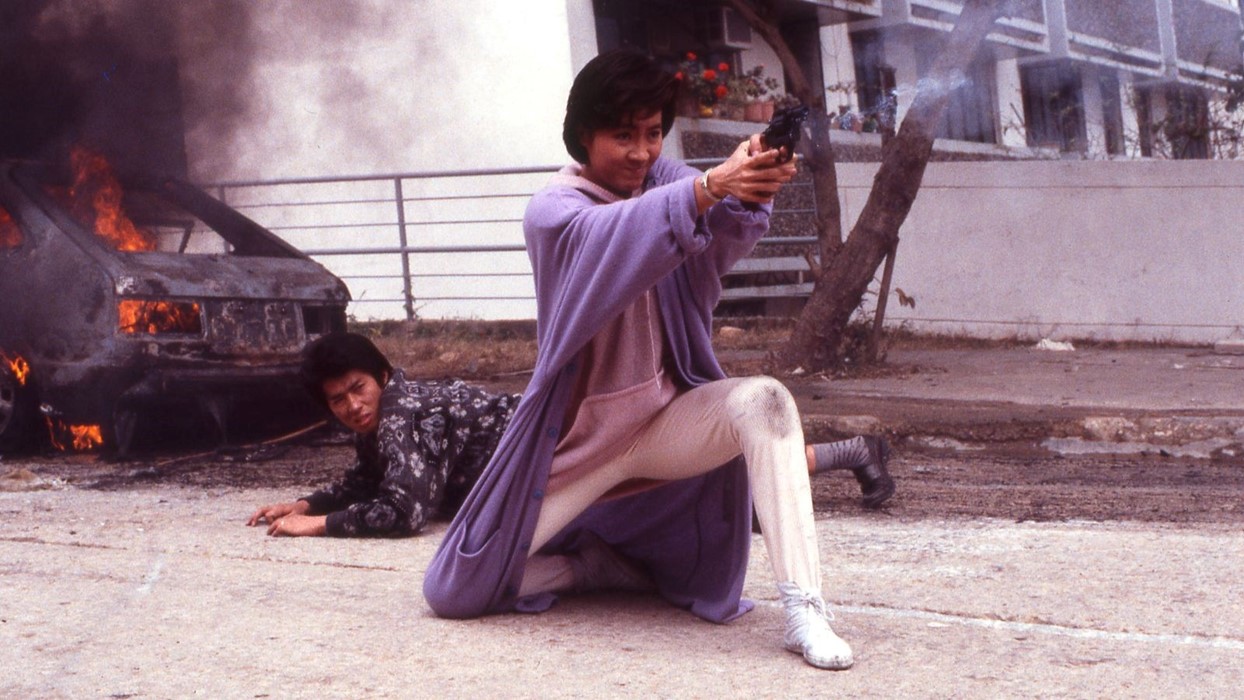
Royal Warriors (David Chung, 1986)
The second entry in the In the Line of Duty series picks up exactly where Yes, Madam left off, with outrageously funky synth-pop sounds and violent yakuza beatdowns – this time, in front of the iconic Yoyogi National Gymnasium in Japan. The stakes then get immediately higher on the way home to Hong Kong, as Yeoh finds herself in the midst of a terrorist incident on the plane involving guns, grenades and a catastrophic loss of cabin pressure.
It’s a textbook plot about a group of PTSD war veterans with some dastardly plans; they come up against a formidable female (Yeoh) tag-teamed with a Japanese Interpol agent (Hiroyuki Sanada, Ring) who has nothing left to lose. There are car chases, chainsaws, and nightclub massacres – and one of the most dramatic rooftop plunges in cinema outside of Die Hard.
It’s all outrageous fun, with the action sequences (choreographed by Mang Hoi, who played Aspirin in Yes, Madam) garnering the film a nomination at the Hong Kong Film Awards on the year of its release. All the while, Yeoh’s star was rising – and her next film was able to secure a larger budget for an even loftier spectacle shortly after.
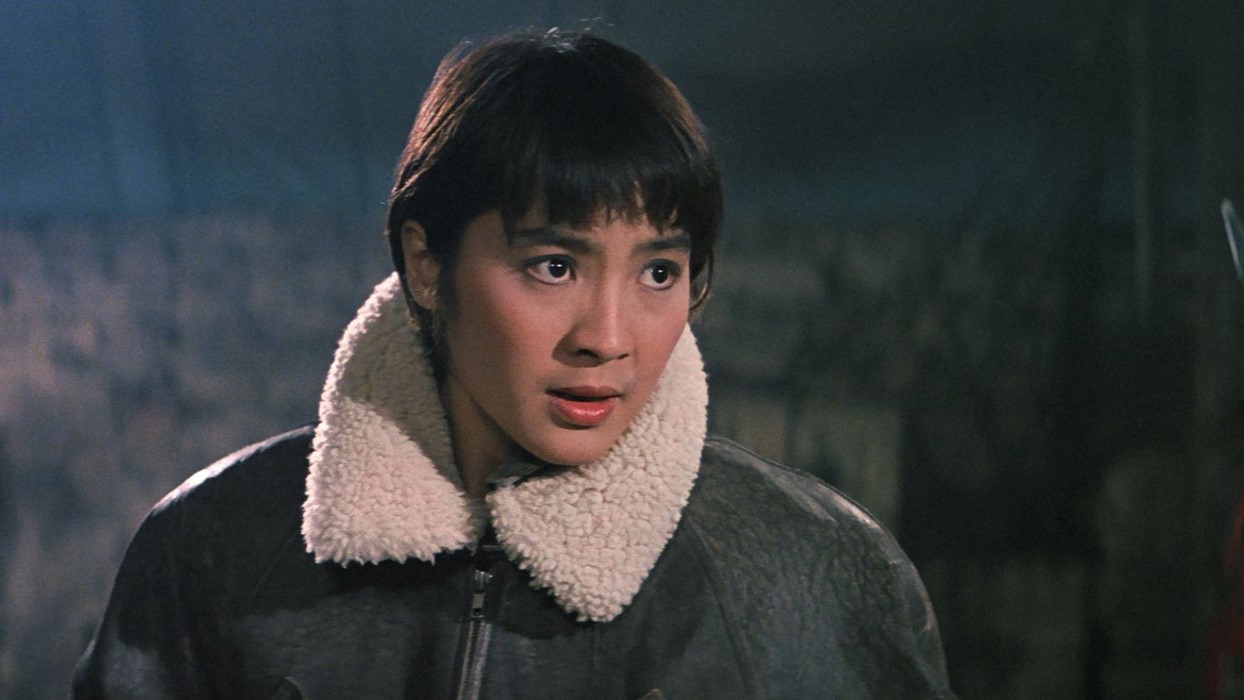
Magnificent Warriors (David Chung, 1987)
Nearly a full decade before Lara Croft began tomb-raiding on the PlayStation, Yeoh delivered her own feminine take on the Indiana Jones formula in the swashbuckling Magnificent Warriors. A spaghetti-western-tinged action-adventure set in dusty 1930s China, it finds Yeoh’s secret agent sporting a brown leather jacket and cracking a whip just like Harrison Ford – as the villainous Japanese are brought down by her exploits.
It begins in giddy fashion, with Yeoh firing a machine gun from a horse-drawn cart into the burning wreckage of an enemy hideout. Soon after, there are biplane dogfights, crossbow battles, and bundles of short-fuse dynamite. Nonetheless, despite the considerable spectacle (its HK$20m budget was huge for the time), the star would harbour mixed feelings towards the film as time passed.
In an archival interview included on Eureka’s new home media release, Yeoh would rue the physical combat, motorbiking and tireless rooftop escapes, describing it as “the toughest film I had ever made.” Within months of the movie’s release, Yeoh would announce her retirement from acting and marry billionaire retail tycoon and film producer Dickson Poon – whose studio, D&B Films, had been responsible for each of her aforementioned breakout features.
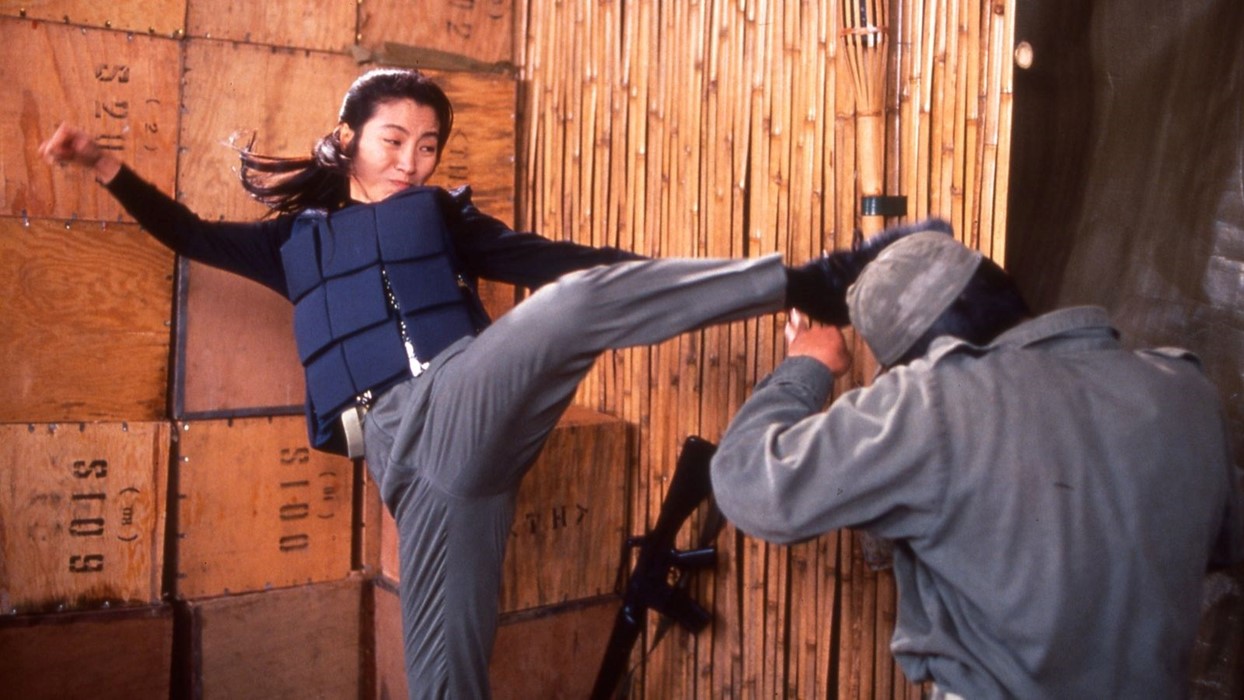
Police Story 3: Super Cop (Stanley Tong, 1992)
But the marriage didn’t last! And after a five-year absence from the silver screen, Yeoh’s comeback would see her team up with “big brother” Jackie Chan in a classic for the ages via the final instalment of the original Police Story trilogy.
The plot: more than half of the drug circulation in south-east Asia has been traced to a single kingpin, who must be stopped at all costs! Hong Kong copper Chan Ka-Kui (Chan), then, is paired with no-nonsense Beijing Interpol superintendent Yang Chien-Hua (Yeoh) and sent off on a mission across Chinese labour camps, holiday resorts in Thailand, and, eventually, the streets of Kuala Lumpur.
After a medley of jaw-dropping set pieces involving zip-lines, speedboats and bazookas, the film’s incredible finale provides the icing on the cake. It’s a sequence that, in 2016, Quentin Tarantino described as the one movie scene he would save for the last of humanity to witness – and it’s a marvel. Yeoh hangs from the side of a van as it races into traffic, while Chan dangles from a rope ladder attached to a helicopter. Then, Yeoh lands a motorbike on a moving freight train – leading to an explosive moving-vehicle-rooftop showdown.
All the stunts were real, and performed by the actors – resulting in a number of close shaves (Yeoh is observed falling from a car into oncoming traffic in an outtakes reel that plays over the credits). “I could have been so seriously hurt in the movie,” she would later say – “but it’s the rush that keeps you going.”
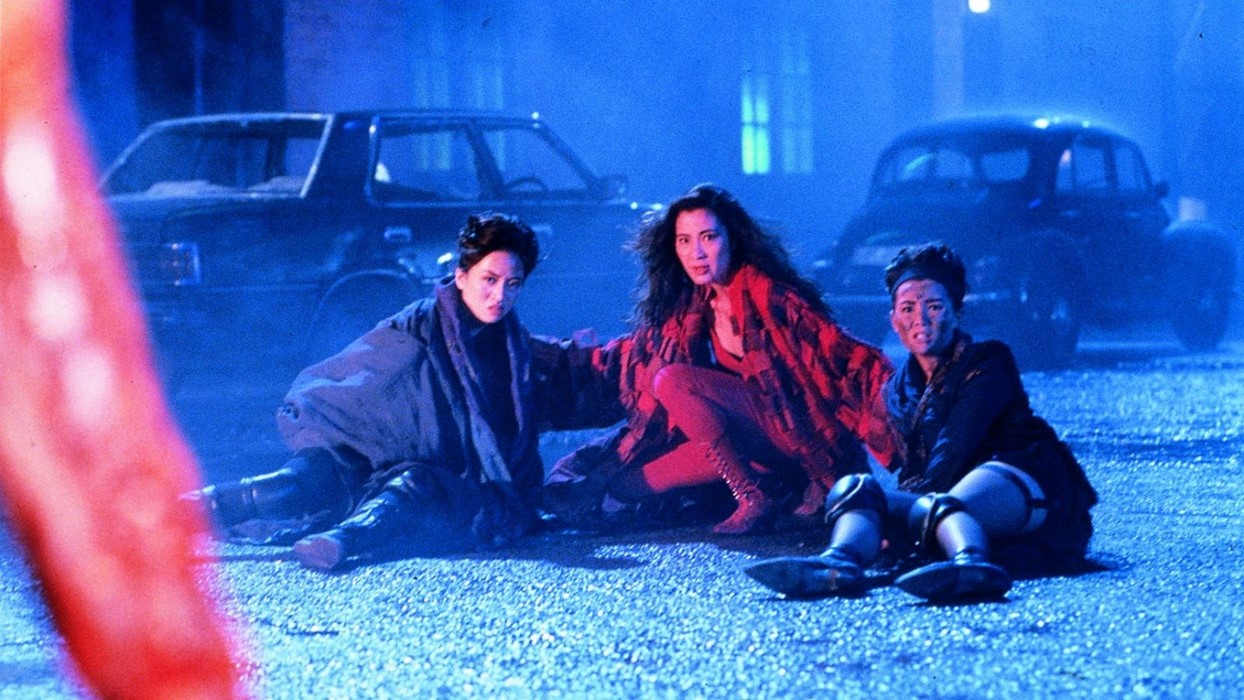
The Heroic Trio (Johnnie To, 1993)
Nascent crime auteur Johnnie To had served as a second unit director on both Magnificent Warriors and Royal Warriors – but by 1993 he was a budding director in his own right. It would be a few years yet before he achieved international prominence via Hong Kong gangster classics like Election and Exiled, but the urban martial fantasy The Heroic Trio would offer a glimpse of his talent in the early 90s. Yeoh was crucial to that.
There is excitement to be found everywhere in this batshit tale of hospital kidnappings, super-heroines and villains-from-another-realm – as gory fatalities and acrobatic showdowns are captured with slow-mo, extreme close-ups and delirious whip-pans. Yeoh’s athletic, silver- and spandex-clad outing as the troubled ‘Invisible Woman’ is a clear highlight – though she’s given a run for her money by the knife-throwing Anita Mui (Rouge) and the scene-stealing Maggie Cheung (In The Mood For Love), who plays a motorcycle-riding heroine prone to whistling London Bridge is Falling Down while blowing up terrorists with a shotgun.
The trio of Hong Kong acting icons would return for a superfluous sequel the following year – with Executioners reimagining them in a post-apocalyptic future in the aftermath of a nuclear catastrophe. Only a few years later, Yeoh hit Hollywood – the rest, they say, is history.
All the above films are available to buy on Blu-ray via Eureka Entertainment here. Yes, Madam and Police Story 3: Super Cop are available to watch on Prime Video.
